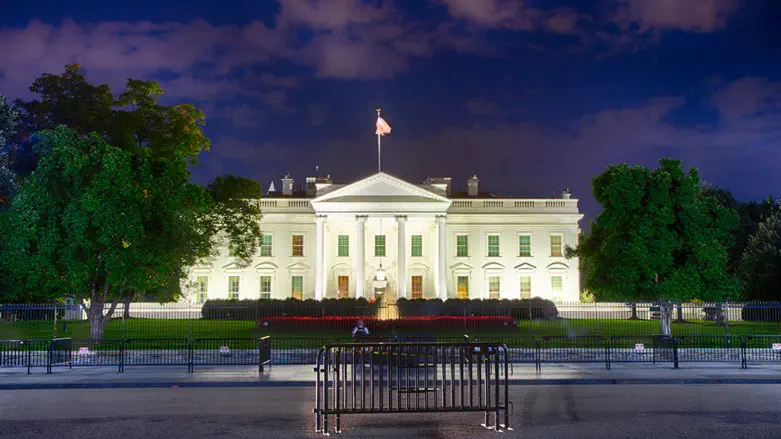
(JNS) At the end of March, in the wake of increasing violence emanating from the cities of Nablus and Jenin in Judea and Samaria, a group of anti-Israel members of Congress wrote a letter to President Joe Biden asking him to “undertake a shift in U.S. policy” regarding Israel. In other words, they asked him to end the U.S.-Israel special relationship.
In previous years, this would have been dismissed as a fringe request from far-left Democrats. However, a March 2023 Gallup poll found Democrats favor the Palestinian Arabs over Israel for the first time by a 49% to 38% margin. In the aftermath of Israel’s judicial reform debate, anti-Israel sentiment is moving even further into the mainstream.
This is part of the reason for Biden’s public rebuke of Israeli Prime Minister Benjamin Netanyahu. As anti-Israel Democrats rise, Biden may be one of the last Democratic presidents to declare himself a Zionist without being pilloried by the Democratic base.
Is this a turning point?
The Jerusalem Post’s Yonah Jeremy Bob wrote, “Biden’s emphatically negative comments about Netanyahu hit Israel like a ton of bricks. There is no way to quickly clean up the negative impact. … But the bigger question everyone is asking is whether … [this has] spilled over into the security sphere.”
A strong Israel is in America’s interest. We in the US rely on Israeli intelligence, support for counterterrorism and development of next-generation technologies that protect our soldiers, such as the Iron Beam laser missile-defense system.
A rift in the U.S.-Israel relationship would degrade America’s ability to project power in the Middle East and send a message that America is an unreliable ally. This could destabilize the region, as adversaries would see it as a window of opportunity to take risks and increase terrorism.
This is the message the Saudis heard as they turned to China. Now, the Saudis have joined the Shanghai Cooperation Organization, which includes Russia, China and Iran. Its purpose is to provide a counterweight to American influence. The organization conducts military exercises, so you can imagine the Defense Department’s fear that advanced weapons bought by the Saudis might be used in joint exercises, providing an opportunity to steal U.S. military secrets.
Except for the Obama administration, previous American administrations, even those hostile to specific Israeli governments, never threatened the foundations of the special relationship. Is Biden following in Obama’s footsteps?
As a recent Wall Street Journal editorial stated, Biden’s rebuke of Netanyahu “makes us wonder if his real goal is to stir more trouble for Netanyahu so his coalition falls.”
Biden has always been a politician first and foremost. He is well aware of changing Democratic attitudes towards Israel. Knowing that most secular American Jews are liberal in their politics, Biden may have calculated that attacking a vulnerable Israeli leader of the right is the politically intelligent choice.
But Biden seems to think the U.S-Israel relationship is a one-way street, forgetting that the United States is now even more reliant on Israeli intelligence after the disastrous withdrawal from Afghanistan. Add to this the unreliability of America’s other regional allies, such as Turkey, Egypt, Jordan and Saudi Arabia.
Some Israeli planners think Israel should wean itself off American military aid to create a healthier relationship. However, for the next 25 years, Israel must have an unbreakable relationship with the United States to deal with external security threats. Every Israeli intelligence, security and defense official I have spoken with says that, for the foreseeable future, the relationship must be sustained.
There is a strong possibility that Israel will choose to strike Iran within the next few years. This will result in tremendous strain on the U.S.-Israel relationship. It is preferable for the relationship to be as strong as possible in such a scenario.
As the former head of Israel’s National Security Council, Meir Ben Shabbat, wrote, “The strong partnership between the countries is not dependent on the identity of the leaders. … Both Israel and the U.S. have a clear interest in improving the somewhat soured relations. … The key beneficiary of this current diplomatic scuffle is Iran. … What we really need here in Israel is a cohesive, common stand.”
Biden should remember that even though he wants to leave the Middle East, the Middle East always comes back to bite you. Israel’s secure presence as a forward base for our munitions, a safe harbor for our sixth fleet in Haifa and unrivaled intelligence capabilities are more critical than ever for both nations’ security.
So, both Biden and Netanyahu should choose the prudent course. As Caroline Glick wrote at JNS, “This has been a bad week for Israel-U.S. relations, but it isn’t cause for despair. … It is cause for a sober-minded reassessment … of Israel’s relations with America to bring them in line with current realities.”
Dr. Eric R. Mandel is the director of the Middle East Political Information Network (MEPIN). He regularly briefs members of Congress and their foreign policy aides, and serves as senior security editor for The Jerusalem Report. Follow him on Twitter @MepinOrg.